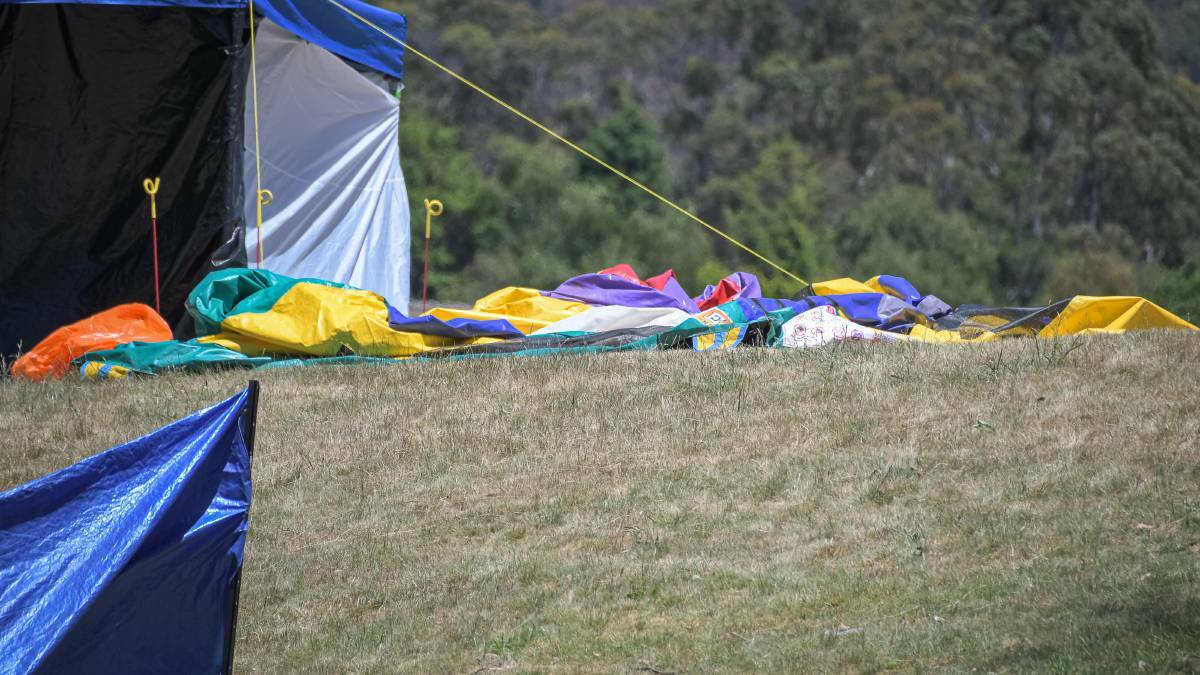
Further jumping castle and inflatable device bans at state based schools are yet to be implemented as the far-reaching toll of Thursday's Hillcrest Primary tragedy takes shape.
Subscribe now for unlimited access.
$0/
(min cost $0)
or signup to continue reading
The Tasmanian Education Department on Friday afternoon implemented a formal ban on the devices at state school as it continued grappling with the fallout of the incident that left five children dead.
But the Tasmanian department stood on its own in introducing the ban, which would carry on at least while investigations into what caused the jumping castle at Hillcrest to lift 10 metres into the air while children were within it.
A Federal Education Department spokesman told Australian Community Media banning inflatables was not within the department's remit.
"The Australian government cannot impose a ban of inflatable amusement devices in Australian schools," he said.
"Such a ban is the jurisdiction of state and territory governments, which are responsible for ensuring the delivery and regulation of schooling to all children of school age in their jurisdiction."
The Tasmanian department originally invoked the ban immediately following the events of Thursday morning before formalising it and extending communications to the whole department.
But at least two other states have not imposed bans on the inflatable devices.
A Queensland Education Department spokeswoman confirmed there were not plans to implement a band on inflatable devices following what happened at Hillcrest.
"Due to the substantial safety measures and risk mitigations put in place, the Department does not intend to immediately ban this type of play equipment," she said.
The spokeswoman said Queensland had "some of the strictest work health and safety laws and regulations in the country".
"The Department and state schools also have extensive safety policies for on site activities," she said.
Part of those work health and safety laws require inflatable devices used in Queensland to be inspected every 12 months.
A NSW Education Department spokeswoman could not confirm that a ban had been placed on inflatable devices in the state, but said a "review" of the "findings and recommendations" stemming from the Hillcrest investigation would take place "when [the findings] become available".
The Western Australia and South Australia Educations Departments were contacted for comment, but had not responded by the deadline.
Jumping castles are regulated as part of a national standard, and the regulation of jumping castle operation in Tasmania falls to WorkSafe as part of the Justice Department.
Part of those regulations in Tasmania require any inflatable device to be regulated with WorkSafe, and to have undergone a series of checks and balances in line with the national standards.
Our journalists work hard to provide local, up-to-date news to the community. This is how you can continue to access our trusted content:
- Bookmark www.examiner.com.au
- Make sure you are signed up for our breaking and regular headlines newsletters
- Follow us on Twitter: @examineronline
- Follow us on Instagram: @examineronline
- Follow us on Google News: The Examiner



